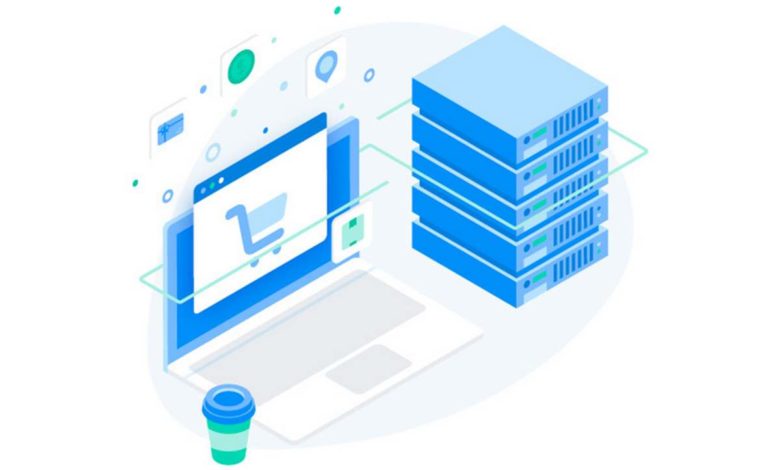
Are you new to web hosting or looking to improve your management skills? Then understanding what a hosting control panel is and how it works is essential knowledge. Here, we will enlighten you on everything you need to know about hosting control panels like ispmanager.
We will also look at some of the most popular web hosting control panels, like ispmanager web hosting control panel, available on the market, their unique and flexible features, and how to choose the right one for your needs. By the end of this article, you will clearly understand hosting control panels and how they can help you manage your web hosting account efficiently and effectively.
What is a Hosting Control Panel?
A hosting control panel is a software application used to administer web hosting services. It is a graphical user interface that enables users to manage their web hosting accounts seamlessly. Hosting control panels are also used by web hosting companies to allow customers to manage their websites and hosting accounts.
The control panel provides users with automation tools to manage their websites, including email accounts, domains, databases, and files. It also allows users to upload and download files, create email accounts, manage domains, and view website statistics. The control panel can also manage security settings and backup and restore files.
One of the main benefits of a hosting control panel is that it allows users to manage their hosting account without using complex command-line interfaces. The control panel provides a simple and intuitive interface that allows users to manage their hosting account without requiring technical knowledge.
Further, hosting control panels are typically web-based, meaning users can access them from any device with an internet connection. The control panel can be accessed through a web browser, thus, making it easy to manage web hosting accounts from anywhere.
Most hosting control panels are built on top of the Linux operating system. Linux is a popular choice for web hosting because it is open-source and provides a stable and secure environment for hosting websites. However, there are also hosting control panels available for Windows-based servers.
Types of Hosting Control Panels
There are several popular hosting control panels available on the market, including cPanel, Plesk, ispmanager, Virtualmin, and DirectAdmin. Each control panel has its set of flexible features and benefits, and choosing the right one for your needs will depend on your specific requirements.
- Ispmanager is a smart tool to manage Linux-based servers. It provides a range of features, including domain management, email management, and website management. Ispmanager is known for its user-friendly interface and is a popular choice for beginners and advanced users.
- cPanel is the most popular hosting control panels used by millions of websites worldwide. It is known for its user-friendly interface and powerful features, including email, file, and domain management.
- Plesk is a popular hosting control panel for Linux and Windows-based servers. It offers a wide range of features, including website management, email management, and database management. Plesk is known for its ease of use and is a popular choice for beginners.
- DirectAdmin is a lightweight hosting control panel for small to medium-sized websites. It offers a simple and intuitive interface and includes email, file, and domain management features.
- Virtualmin is a popular free or open-source hosting control panel for Linux-based servers. It provides a range of features, including domain management, email management, and website management. Virtualmin is known for its ease of use and extensive documentation. It is a popular choice for both web developers and system administrators.
Features of Hosting Control Panels
The features of a hosting control panel can vary depending on the provider and type of hosting service. However, find below some basic features of a hosting control panel.
- Domain Management: The ability to administer domain names, including adding or removing domains, creating subdomains, and managing domain records.
- Email Management: The ability to create and manage email accounts, set up email forwarding, and create autoresponders.
- File Management: The ability to upload and manage website files, including HTML, CSS, and image files, and manage file permissions.
- Database Management: The ability to create and manage databases, such as MySQL or PostgreSQL, and manage users and permissions.
- Website Statistics: The ability to view website statistics, such as traffic, visitor behavior, and resource usage.
- Security: The ability to manage website security, such as SSL certificates, firewall settings, and access restrictions.
- Backup Management: The ability to create and manage website backups, including scheduling backups and restoring from backups.
- Software Management: The ability to install and manage software, such as content management systems, e-commerce platforms, and scripting languages.
Factors to Consider When Choosing a Hosting Control Panel
When choosing the right hosting control panel, there are factors to consider. These factors are highlighted below.
- User-Friendliness: Choose a hosting control panel that is easy to use, with an intuitive interface that allows you to administer your website and hosting account with ease.
- Features: Look for a hosting control panel providing all the necessary features for managing your website and hosting account.
- Compatibility: Ensure that the hosting control panel is compatible with your hosting platform, whether it is Linux or Windows-based.
- Support: Choose a hosting control panel offering good technical support to assist whenever you encounter any issues or have questions.
- Customizability: Look for a hosting control panel that allows you to customize its settings and features to suit your needs.
- Security: Choose a hosting control panel offering robust security features, such as SSL certificates, firewall protection, and anti-malware measures.
- Pricing: Consider the pricing of the hosting control panel and whether it fits within your budget.
- Reputation: Look for a hosting control panel with a good reputation among users and is known for its reliability and performance.
Final Words
A hosting control panel is an essential tool for managing web hosting services. It provides an intuitive and user-friendly interface that allows users to easily manage their hosting account without requiring technical expertise. The control panel provides a range of features, including email, file, and domain management, and website statistics. Choosing the right hosting control panel will depend on your needs and requirements, but popular options include ispmanager, Virtualmin, cPanel, Plesk, and DirectAdmin. Finally, a hosting control panel is essential for anyone looking to administer their web hosting account efficiently and effectively.



